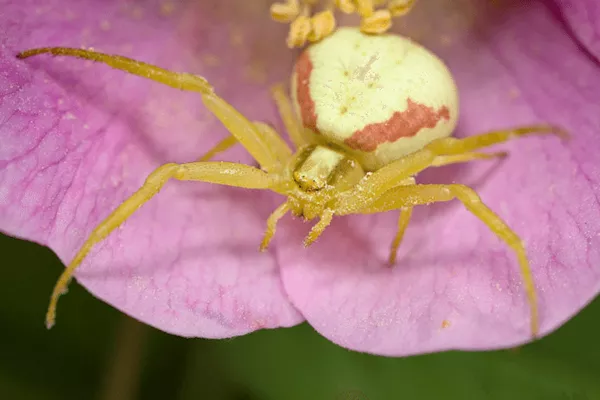Spiders are arachnids that play a crucial role in controlling insect populations. While most species are harmless, their presence indoors is often unwelcome. Understanding what flowers and plants spiders tend to avoid can help in creating environments that discourage their presence.
Aromatic Plants as Natural Spider Repellents
Spiders rely heavily on their sense of smell to navigate and locate prey. Certain plants emit strong fragrances that are unpleasant to spiders, making them effective natural repellents. Here are some notable examples:
-
Lavender (Lavandula angustifolia): Renowned for its calming scent, lavender is also effective in deterring spiders. Its aroma disrupts spiders’ sensory receptors, discouraging them from settling nearby. Planting lavender near entry points or placing dried lavender sachets indoors can help keep spiders at bay.
-
Peppermint (Mentha × Piperita): The strong, invigorating scent of peppermint is known to repel various pests, including spiders. Growing peppermint around your home or using peppermint oil sprays can create a spider-deterrent barrier.
-
Marigolds (Tagetes spp.): Marigolds emit a pungent odor that is unappealing to many insects, including spiders. Planting marigolds in your garden or placing pots near windows and doors can help deter spiders from entering your home.
-
Chrysanthemums (Chrysanthemum spp.): These flowers contain pyrethrum, a natural compound used in many insect repellents. Having chrysanthemums in your garden can help keep spiders and other insects away.
-
Eucalyptus (Eucalyptus spp.): The strong scent of eucalyptus is effective in repelling spiders. Planting eucalyptus trees near your home or using eucalyptus oil in diffusers can help deter spiders.
-
Basil (Ocimum basilicum): Basil’s aromatic leaves are not only culinary delights but also serve as spider repellents. Planting basil near entryways or using basil oil can help keep spiders at bay.
-
Rosemary (Rosmarinus officinalis): The woody scent of rosemary is unappealing to spiders. Incorporating rosemary into your garden or using its oil in sprays can deter spiders from entering your home.
-
Lemongrass (Cymbopogon citratus): Lemongrass contains citronella, a compound known to repel insects. Planting lemongrass around your home or using its oil can help keep spiders away.
-
Dill (Anethum graveolens): Dill’s aromatic foliage is effective in repelling spiders. Planting dill in your garden can serve as a natural deterrent.
-
Catnip (Nepeta cataria): While catnip attracts cats, it repels spiders. Planting catnip near entry points can help keep spiders away.
Strategic Placement of Spider-Repelling Plants
To maximize the effectiveness of these plants in deterring spiders, consider the following placement strategies:
-
Near Entry Points: Positioning plants like lavender, peppermint, and marigolds near doors and windows creates a natural barrier that spiders are less likely to cross.
-
Indoor Placement: Placing pots of spider-repelling plants on windowsills or near corners can discourage indoor nesting.
-
Garden Borders: Planting these species along the perimeter of your garden can prevent spiders from approaching your home.
Additional Natural Methods to Repel Spiders
Incorporating the following natural methods can further enhance your efforts to keep spiders away:
-
Essential Oil Sprays: Creating sprays using essential oils from lavender, peppermint, or eucalyptus and applying them to areas where spiders are likely to enter can be effective.
-
Citrus Peels: Spiders are known to dislike citrus scents. Placing lemon or orange peels near entryways or windowsills can act as a deterrent.
-
Regular Cleaning: Maintaining a clean environment by removing webs and minimizing clutter reduces hiding spots for spiders, making your home less attractive to them.
Considerations and Precautions
While these natural repellents are effective, it’s important to use them responsibly:
-
Toxicity: Ensure that the plants used are not toxic to pets or children if they are present in your household.
-
Allergies: Be mindful of any allergies that household members may have to certain plants or their scents.
-
Environmental Impact: Opt for non-invasive plant species to prevent unintended ecological consequences.
Conclusion
Integrating specific flowers and plants into your home and garden not only enhances aesthetic appeal but also serves as a natural deterrent to spiders. By understanding spider behavior and strategically utilizing these plants, you can create an environment that is both welcoming to humans and uninviting to spiders.
Related Topics:


